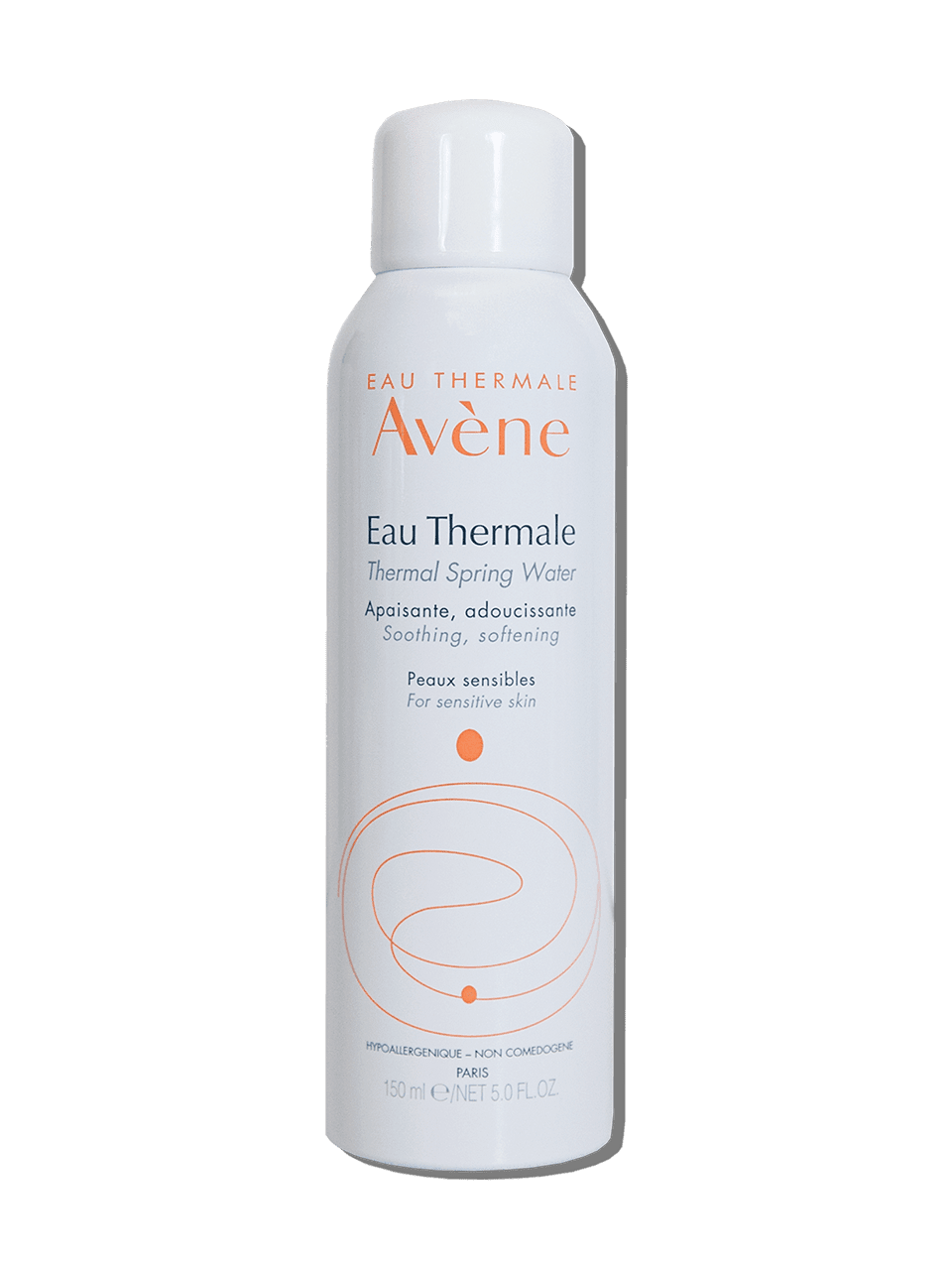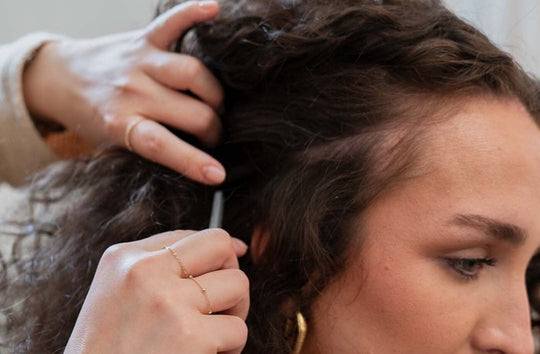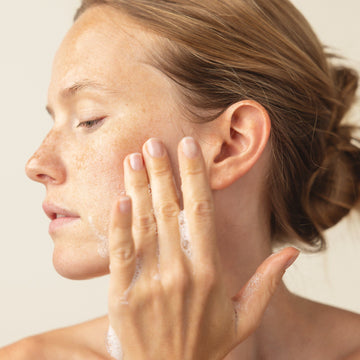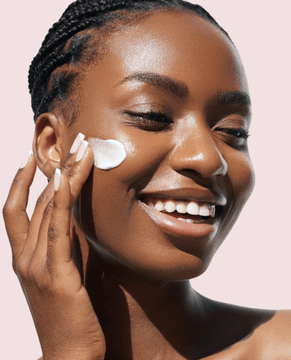The Role of Hydration in Achieving Healthy Skin

Dry skin is a nuisance for so many reasons. It looks rough and flaky, and feels tight and uncomfortable. Skin dehydration causes your cells to deflate and appear dull, magnifying signs of aging. If not addressed promptly, chronic dryness can cause collagen breakdown and low-grade inflammation, inhibiting your body’s natural cycle of youthful replenishment and leading to reactive, sensitive skin.
As the body’s largest organ and major protective barrier, it’s essential to regularly moisturize our skin. Here’s my guide to healthy hydrated skin and my favorite ways to restore its vibrancy.
Understanding the Skin
To understand skin health, you should first know about the skin’s three main layers: the subcutis, dermis, and epidermis. Each layer has specific functions, including protection, sensation, and production of oils and sweat.
Subcutaneous tissue, or the hypodermis, is the deepest layer of your skin, made up of fat cells and connective tissue. This insulating layer protects your internal organs and muscles from injury and changes in temperature.
The dermis is the fibrous middle layer of the skin composed of collagen, elastic tissue, blood vessels, nerve endings, hair follicles, and glands. The role of the dermis is to support and protect, regulate body temperature through sweat production, blood vessel dilation/contraction, and aid in sensation (i.e., touch, temperature, pain).
The skin barrier, or the epidermis, is the outermost layer of the skin. It plays a role in hydration by preventing water loss and shielding against harmful substances. But beyond that, the epidermis protects against environmental aggressors (pollution, ultraviolet light, allergens, etc.), prevents microbial infection, and regenerates after injury.
Altogether, this complex organ protects us from external aggression and preserves its integrity. When any part of this protective barrier system is disrupted, it can trigger a harmful cycle of inflammation, potentially leading to the onset of skin conditions like atopic dermatitis.
Why It’s Important To Hydrate Your Skin
Hydration refers to the process of supplying adequate moisture to the skin cells. Proper hydration helps maintain the skin's biological functions, such as regulating oil production and supporting cell turnover. We can't control our environment or genetics, but we can control our hydration levels, diet, and skincare regimen.
-
Hydration is vital to bodily functioning: Water is critical to various bodily processes on a cellular level, including nutrient absorption, waste elimination, and temperature regulation. Water also helps to maintain the skin’s moisture balance and support healthy cellular processes.
-
Dehydration negatively affects the skin: Low water intake leads to a decrease in skin moisture, resulting in dryness, tightness, and flakiness. Long-term skin dehydration can impair the skin barrier function, leading to increased sensitivity and susceptibility to damage.
-
Hydration improves skin’s appearance: Adequate hydration helps maintain the skin's elasticity and a smoother and softer texture. Keeping skin hydrated and healthy keeps it plump, firm, and youthful.
- Water detoxes skin and removes waste: Water aids in flushing out toxins and waste products from the skin cells, promoting a clearer complexion and reducing the risk of breakouts.
What Causes Dry Skin?
Our skin does its best to moisturize itself naturally. But unfortunately, our own defenses are often no match for dry conditions, irritating pollutants, changes due to aging or hormonal imbalances, and impacts from stress.
- Environmental factors: Your skin may be affected by dry air, exposure to sun and wind, or cold temperatures depending on where you live, how much time you spend outdoors, and the season. All of these factors can accelerate water evaporation from the skin, leading to dryness.
- Lifestyle factors: Smoking and excessive alcohol intake can dehydrate the body and negatively impact skin health. A holistic approach to skincare can make a big difference in dry skin, including a balanced diet rich in water-containing foods (fruits, vegetables), and cutting back on the substances we know to be harmful to our health.
- The wrong skincare products: While it may seem like a good idea to scrub that dead skin and dirt away, using harsh cleansers and excessively exfoliating skin can do more harm than good. Drying ingredients and over-exfoliating can strip the skin of its natural moisture and damage the skin barrier. Instead, opt for a gentle oil cleanser like my favorite from Wonder Valley.
- Age and genetics: While genetics can influence an individual's natural skin hydration levels, aging reduces the skin's natural ability to retain moisture, making hydration even more crucial.
Benefits of Hydrated Skin
You probably already know how to hydrate skin, but are you aware of these incredible benefits?
-
Improved skin moisture levels: The most obvious reason to moisturize is to replenish and retain hydration levels within the skin and prevent dryness. Look for hyaluronic acid in serums like Environ’s Intensive Hydrating Serum or a ceramide-rich formula like our Cream.
-
Enhanced skin elasticity and firmness: Well-hydrated skin is healthy and supple. The skin barrier is balanced, functioning properly, and maintaining its elasticity. Vitamin and antioxidant-enriched moisturizers help boost collagen production and fight off damaging free radicals.
-
Reduced appearance of fine lines and wrinkles: Moisturizing will not permanently remove wrinkles, but it will temporarily plump up the skin and fill in fine lines. Cream Extraordinary by MBR intensively moisturizes the skin while stimulating collagen synthesis, allowing for a long-term plumping effect from deeper layers of the tissue.
-
Improved skin texture: Dry skin is unpleasant to the touch, often appearing flaky, bumpy, and rough. However, once moisturized, it becomes soft and smooth. Moisturizers help the skin absorb water and fill in the spaces between skin cells, resulting in a smoother surface.
-
Soothes irritation: Properly hydrated skin helps alleviate irritation, helping your skin stay calm and well-balanced and reducing the likelihood of redness and discomfort. Excessively dry skin loses its elasticity, leading to cracking and peeling. To prevent this problem entirely, I recommend consistently applying a creamy lotion.
- Reduced blemishes: It may sound counterproductive, but moisturizing can help control oily and acne-prone skin. Consistent moisturization helps regulate the oil glands on your face, reducing the likelihood of excessive production that can lead to acne. By maintaining well-hydrated skin, you effectively prevent the emergence of blemishes.
How To Keep Your Skin Hydrated and Healthy
-
Drink an adequate amount of water daily: You’ve heard this one before—drink up! Drinking at least eight glasses (64 ounces) helps moisturize your skin naturally and cleanses your body of toxins that may irritate it.
-
Use moisturizers and skincare products with hydrating ingredients: Look for products containing hyaluronic acid, glycerin, ceramides, and natural oils to lock in moisture and prevent water loss. Our Balm is a game-changer when it comes to hydration.
-
Avoid excessive exposure to hot water and harsh cleansers:Hot water and harsh cleansers can strip the skin of its natural oils, leading to dryness and, often, irritation.
- Implement a regular skincare routine: You can easily combat dry skin with a consistent, nightly skincare routine that includes cleansing, toning, and moisturizing. These three simple steps will protect the skin and maintain its hydration levels.
Additional Approaches To Enhance Skin Hydration
Now that you know the basics of how to keep your skin hydrated and healthy, here are a few extra pointers to amp up your routine.
-
Keep a humidifier on at night:Hack a dry climate by providing some humidity. Run a humidifier near your bed so your skin can absorb the moisture.
-
Facial mists and sprays: I love a facial mist like Avene’s Thermal Spring Water to quickly refresh my skin throughout the day. Quick tip- misting a facial spray before applying serums and lotions is a great way to increase absorption of the product.
-
Hydrating face masks and treatments: A hydrating sheet mask 1-2 times a week or after a day of traveling on a dry airplane is an essential part of my routine.
- Professional skincare treatments: Targeted facial treatments can deeply hydrate and provide long-lasting results. Ultrasound, LED, and manual facial massage all enhance circulation and product penetration, allowing the skin to stay hydrated for longer.
Why Hydration is Important For Healthy Skin
Hydration is essential for maintaining your skin's health, function, and appearance. If you stay mindful and consistent with regular moisturizing and adequate hydration levels, you'll easily be able to support your skin's barrier function and sustain a healthy, radiant complexion.
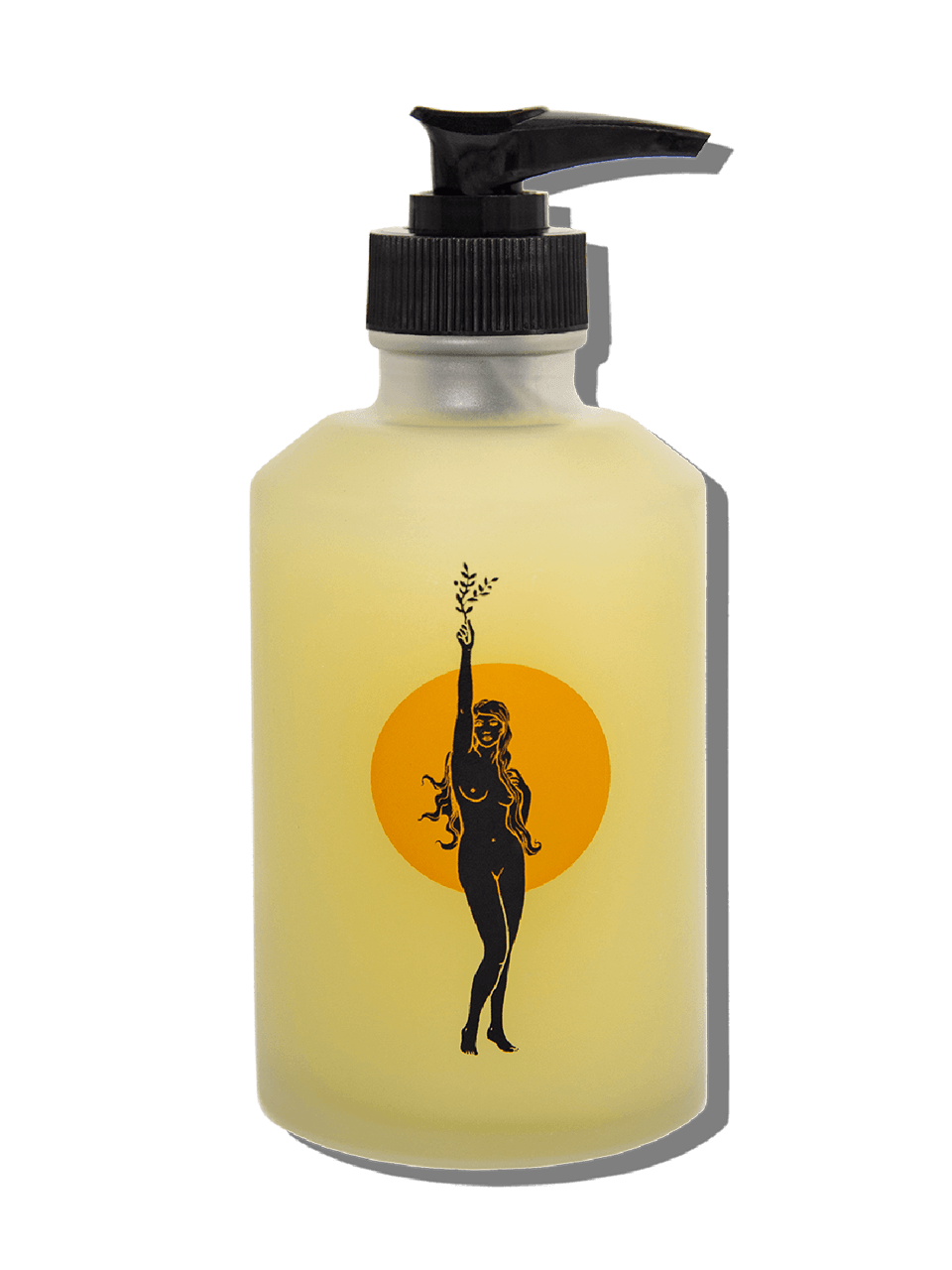
Wonder Valley
Oil Cleanser
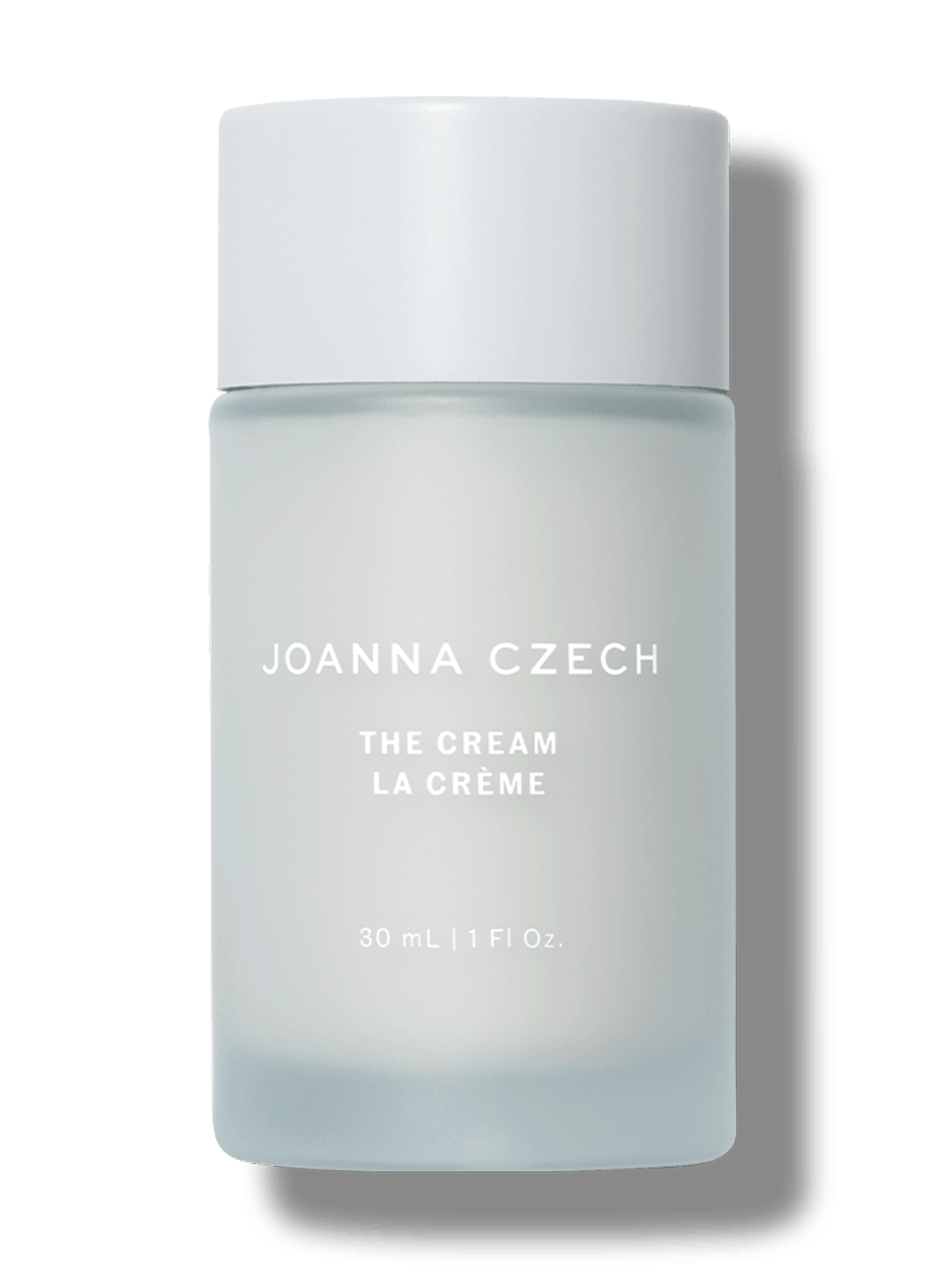
Joanna Czech Skincare
The Cream
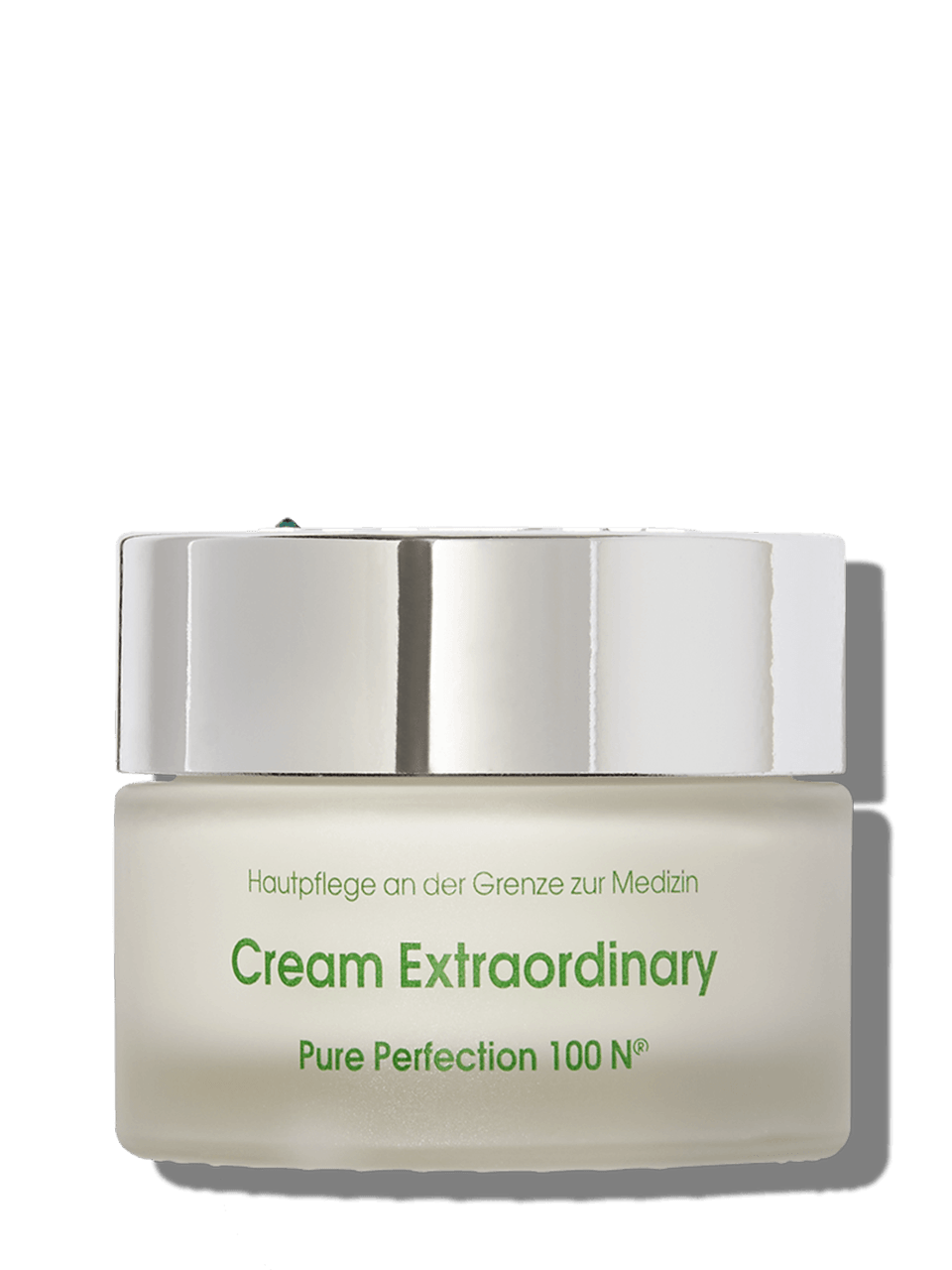
MBR Medical Beauty Research
Cream Extraordinary
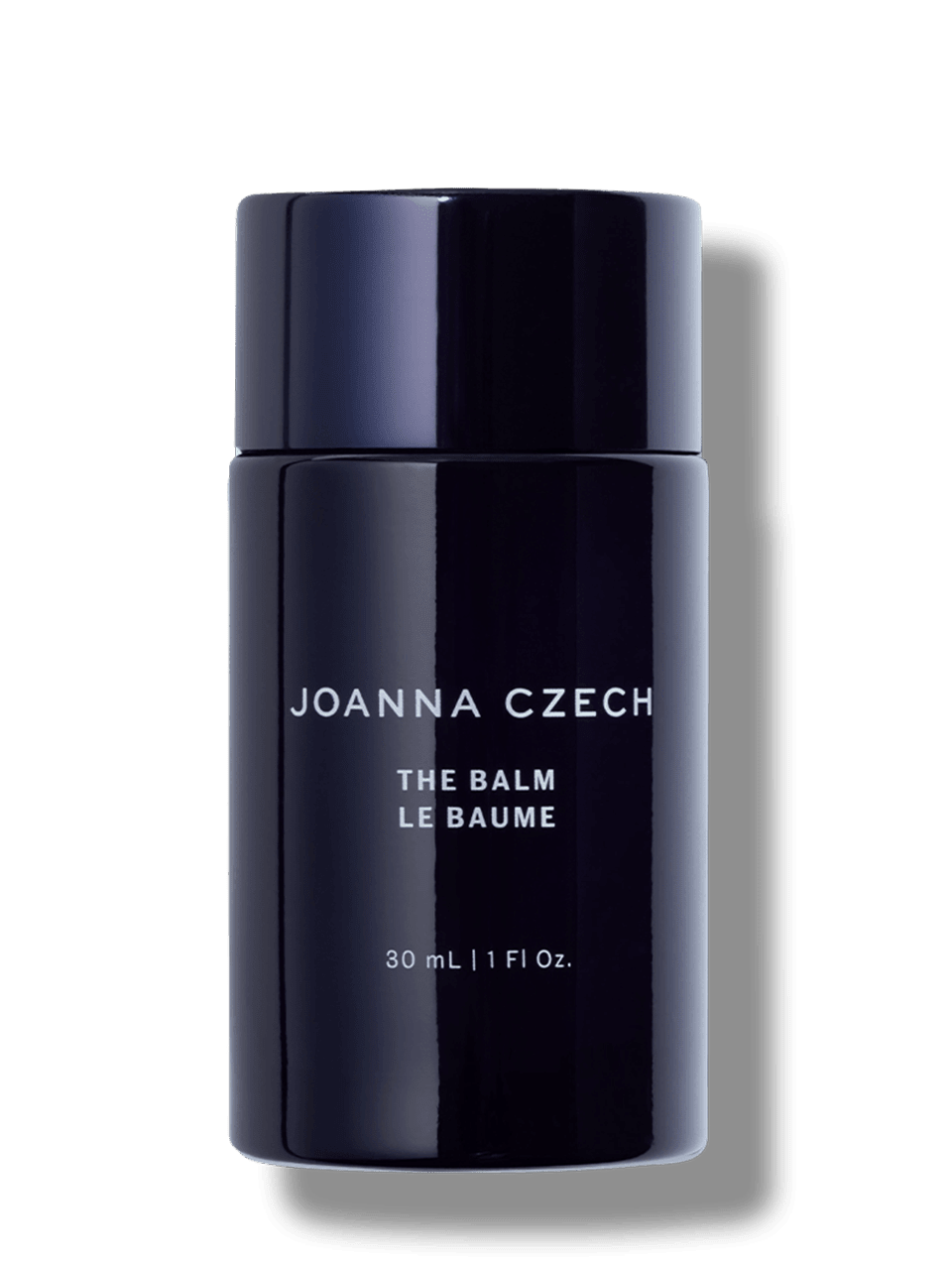
Joanna Czech Skincare
The Balm
